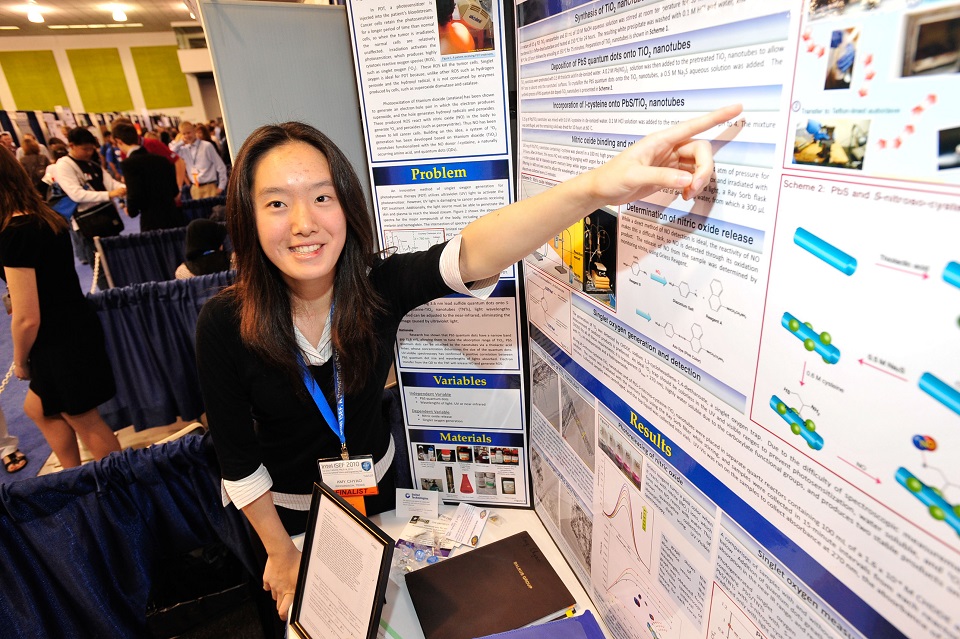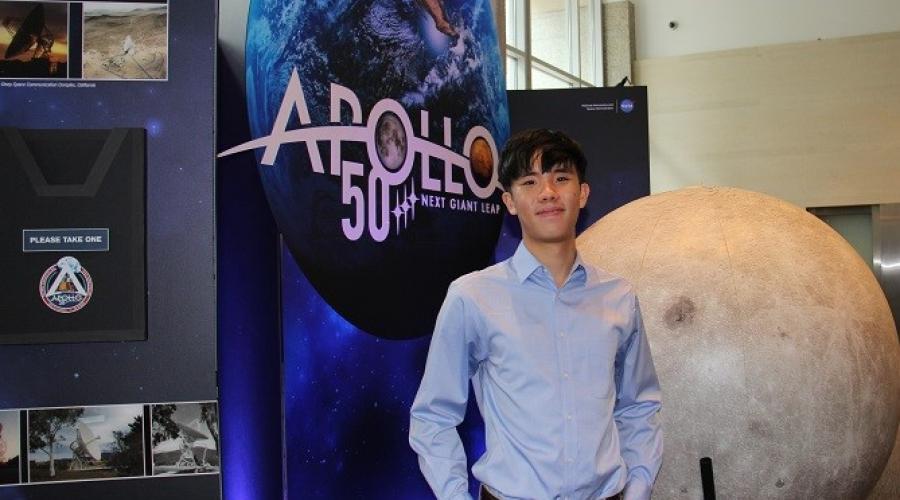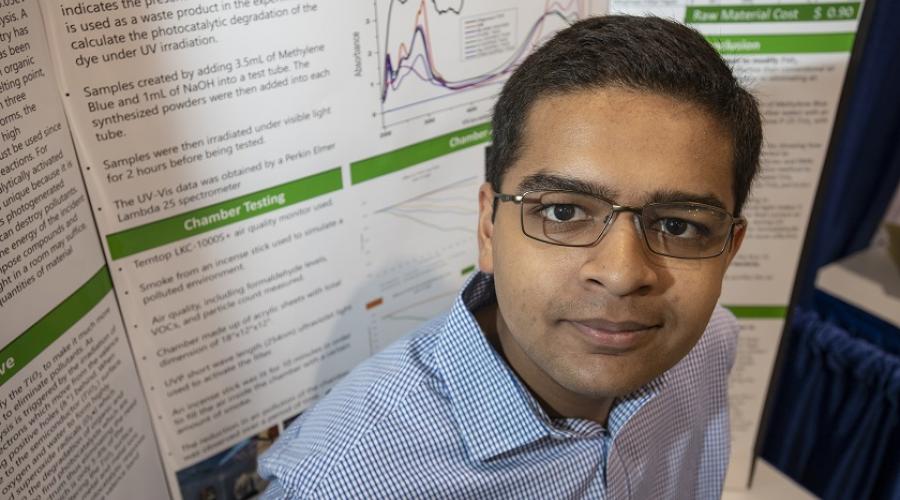Pediatric Surgery Institute Offers Awards at Intel ISEF for the First Time
The Sheikh Zayed Institute for Pediatric Surgical Innovation at Children’s National Medical Center participated as a Special Award Organization for the first time at Intel International Science and Engineering Fair (Intel ISEF) 2013 this past May in Phoenix, Arizona. Answers to the questions below were provided by Dr. Craig Peters, Pediatric Urologist and Chief, Surgical Technology and Translation, and Dr. Martha Houle, Director of Education.
Can you tell us about your organization and why scientific research is important to it?
The Sheikh Zayed Institute for Pediatric Surgical Innovation was created by a gift from the government of Abu Dhabi to promote innovation to make pediatric surgery more precise, less invasive and pain-free. To that end, research at both basic and translational levels in areas that impact surgery in children is essential. Without high quality research and researchers, pediatric surgical practice cannot advance.
What made your organization decide to offer a special award at Intel ISEF?
The future of surgery for children lies in young people and their engagement in science, technology, engineering and mathematics. They represent the future investigators we need as a global community to continue the discovery that our Institute is committed to develop.
What award(s) do you offer?
2013 was our first year offering awards related to healthcare innovation at Intel ISEF. Our announcement stated that, “The Sheikh Zayed Institute for Pediatric Surgical Innovation at Children’s National Medical Center recognizes projects that best represent innovation in surgery and medicine, especially when it benefits children.”
Why do you think it’s important for students to participate in events such as the Intel ISEF? And/or why is it important to encourage scientific education and research?
The future of biomedical research depends on young enthusiastic investigators engaging in the questions of healthcare-related science, technology and delivery. Early explorations into the challenges and rewards of investigation and discovery often define the career paths of young people, as the judges know from personal experience. Providing a forum for sharing these challenges and rewards is a powerful stimulus to spark a life-long interest.
What impact do you think you, as an organization that provides awards and as judges, have on students interested in scientific research?
Expressing a sincere interest in the students involved in these projects, more than just in the project, is extremely important in reinforcing their engagement in discovery. This engagement needs to include positive and directed review, criticism, and encouragement.
What are the elements of a good science fair project?
As with all science, a good project asks a clearly defined question in an area of importance, and uses a well-described method to answer that question. Most projects lead to more questions which are more precise and lead in their turn to a fuller understanding.
Do you have any advice for young students interested in pursuing science? For organizations interested in becoming involved at Intel ISEF?
Science can be fun, like a puzzle to solve, and it can be a group activity. Find anything that is of interest; it does not have to be fancy or sophisticated, but must be of interest to you. As you learn more about it, questions will appear tha t can lead you on to even more questions and greater interest and understanding.
For organizations, participating in the Intel ISEF can be an invigorating experience. Seeing the enthusiasm and talent of young people is exciting and makes one feel good abo ut the future. Being able to support those activities and encourage participants to engage in scientific discovery is even more rewarding.
Recent Winners:
Winners of the 2013 awards include Junyi (Sarah) Wu from Brantford, Canada for “Colorimetric Detection of Plasmodium falciparum via Aptasensor Technology,” Aryo Sorayya from Danville, California for “Designing a Novel Freeze-Stable Tetanus Vaccine,” and Luciano Thoma from Paysandu, Uruguay for “Interpreter Glove for Deaf People.”


